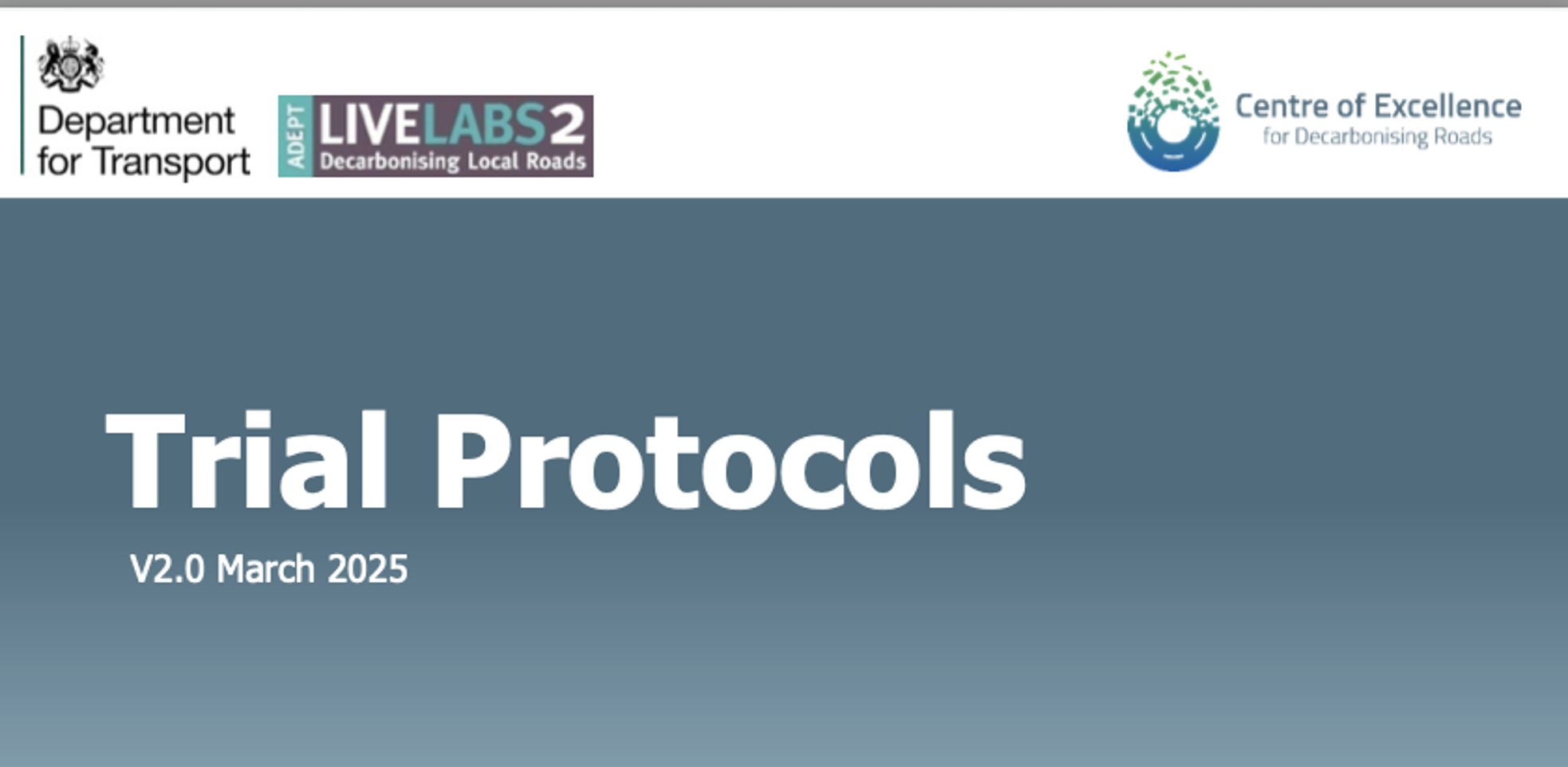Tagged in:
Trial Protocols
This document acts as a guide for future trials lead by the Centre of Excellence, highlighting how a ‘gold standard’ trial would be conducted to provide valuable and feasible data to the local roads sector. This will also act as a guide for wider trials led by local authorities across the UK, enabling them to collate and collect data consistent with our own. Creating valid, harmonious carbon data across the network.

Other Articles
View all Articles View Article
View Article
Impact of Local Road Maintenance on Carbon Emissions
This article provides a high-level technical overview of the carbon emission sources associated with local highways maintenance activities across the UK network.
 View Article
View Article
Insights into the Barriers to Decarbonising Roads
The Barriers to Decarbonising Roads Sandbox (BDRS) formed part of ADEPT’s Live Labs 2 programme, which explores how innovation can accelerate the decarbonisation of the UK’s local roads. Delivered in collaboration with the Centre of Excellence for Decarbonising Roads (CEDR) and the Safetytech Accelerator, the Sandbox provided a national testbed where emerging companies could work directly with local authorities, contractors and academic partners to identify and overcome barriers to the adoption of low-carbon materials and technologies.
 View Article
View Article
Local Authority Playbook for Low-Carbon Material
ADEPT Live Labs 2: A Local Authority Playbook for Low-Carbon Material

Comments